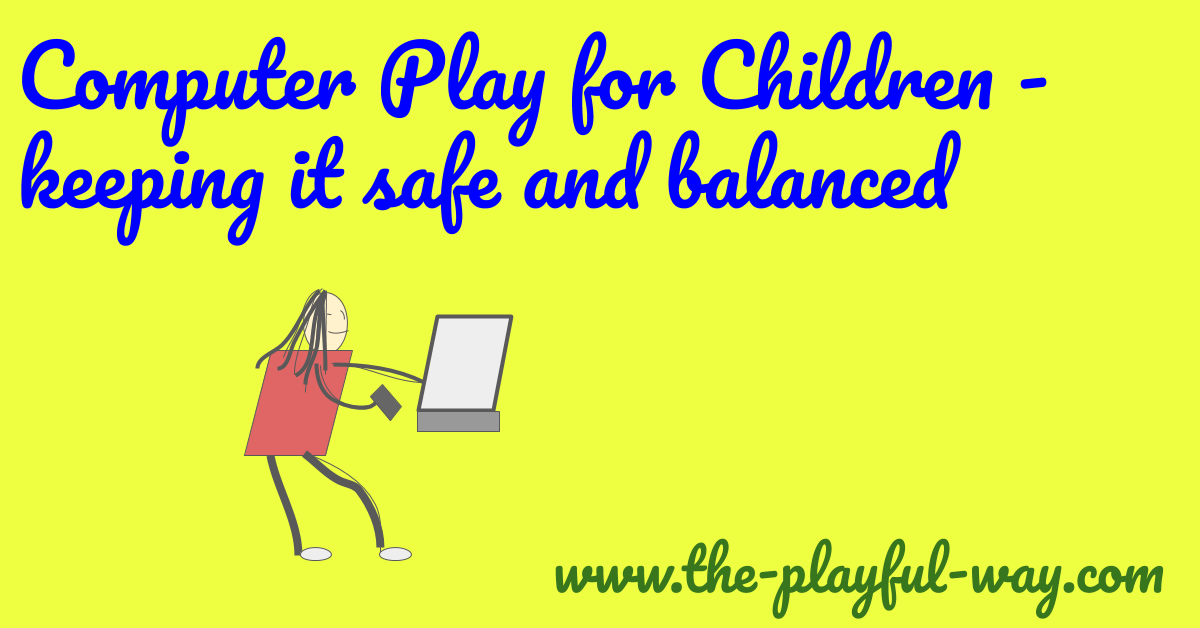
Recently I wrote about different types of play. When I got to Computer Play I realised that I had opened a complete can of worms!
This is a very controversial area.
As far as I can see, its all about balance. There are some potential problems to watch out for:
- computer games can be very addictive. It’s difficult to get off that screen once you’re on it.
- Some computer games revel in violence.
- despite the chat functions, gaming is often a solo pursuit.
- While you may think your child is safe in their room, computer game chat rooms are the perfect haunt for unsavoury characters looking for vulnerable children.
- Lots of other children are playing, yours may feel they are missing out.
Here are some guidelines:
- Everything in moderation. We want our children to be able to make healthy choices in their lives, so it’s important that they get a good balance of outdoor, physical, creative and exploratory and social play as well as screen time. There is no recommended limit on screen time in the UK, but the American Society of Paediatrics recommends no screen time at all up to 18 months, and then a maximum of 1 hour per day up to the age of 5. Tell them the time limit before they start playing, and then give them 5 minutes warning before the time is up.
- Use the age ratings on games to ensure that the game is suitable for your child. It’s tricky if their friend is playing a game that you don’t approve of, but talking to your child about why you don’t think it’s okay will help them understand.
- Play with your children when you can. The computer game is a perfect babysitter, your child is sitting still and you can get on with something else. However, they may get more out of it (and also take your time limits and guidance with more credence) if you occasionally play with them. They get to teach you how to do things, they can show you and tell you what they enjoy about the game and you build a relationship.
- Talk to them about e-safety, the importance of not giving away any personal information in a chat-room, coming and telling you if they are worried about anything etc. There are some great resources on ThinkuKnow to support this learning.
- You should always know when your child is online or playing a computer game, and you should always be able to look over their shoulder and see what they are playing and what they are doing. Hiding their computer game playing is a warning flag and you should talk to them. It either means that they are playing when you haven’t agreed it (going over the agreed time limits), they are playing something that you wouldn’t approve of, or they are chatting in a way you wouldn’t be happy with.
Charlie Brammer says:
Nice Article
theplayfulway_v3ra6n says:
Thanks! I thought so.